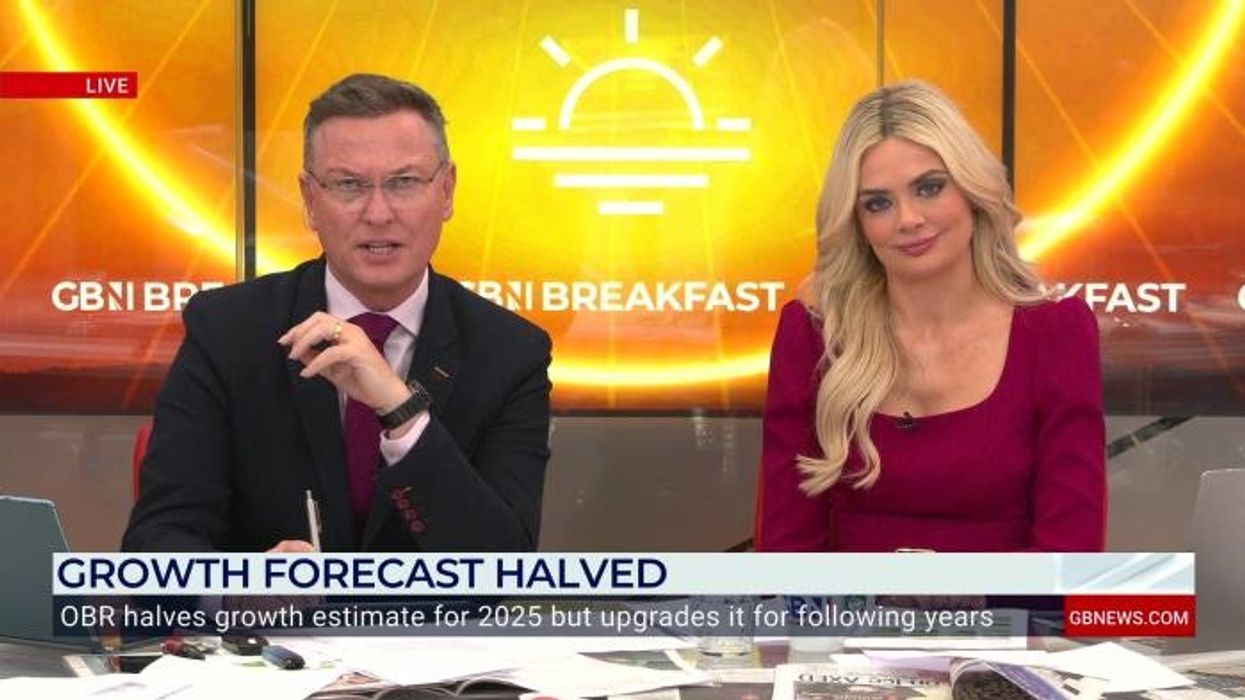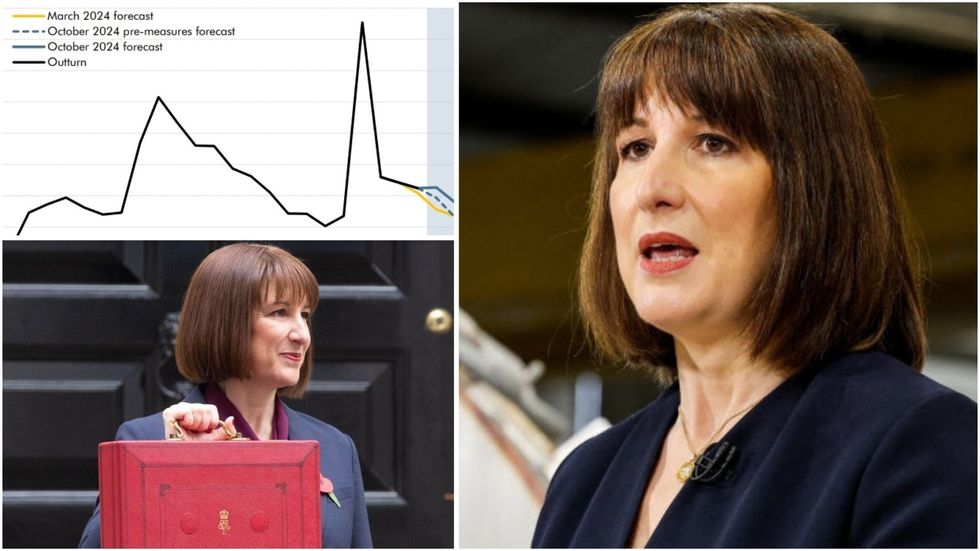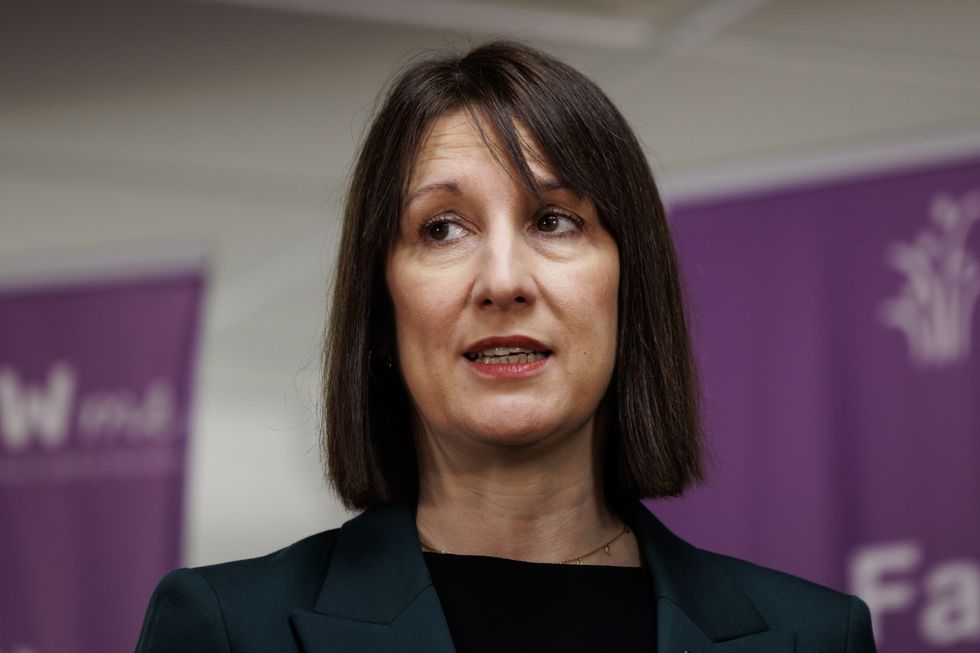'UK already out of fiscal space!' Rachel Reeves warned rules 'damaging' credibility as £9.9billion cushion vanishes

Chancellor Rachel Reeves is grilled on her handling of the economy |
GBNEWS

The Chancellor’s £9.9billion fiscal buffer eroded by rising gilt yields, sparking warnings of new tax rises or spending cuts
Don't Miss
Most Read
Chancellor Rachel Reeves is facing mounting pressure on UK public finances as a global bond market sell-off sparked by US debt fears squeezes her fiscal plans.
Yields on 30-year gilts are approaching a 27-year high, closing at 5.48 per cent on Friday.
UK 10-year gilt yields have risen more than equivalents in any other G7 country except Japan over the past year.
With economic growth remaining sluggish, investors warn that Reeves will need to implement further spending cuts or raise taxes again to meet her fiscal rule of balancing day-to-day spending with revenues by 2029/30.
Anders Persson, head of global fixed income at asset manager Nuveen said: "Gilts remain in the crosshairs."
Higher borrowing costs are eroding Reeves' fiscal room for manoeuvre while she simultaneously faces political pressure to loosen spending constraints.
Prime Minister Sir Keir Starmer recently announced plans to reverse at least some of the £1.5billin annual savings from winter fuel payment cuts. He also wants to end the two-child benefit cap, potentially costing about £3billion yearly.
 Rachel Reeves under pressure to raise taxes or cut spending as £9.9bn fiscal headroom 'evaporates' | GETTY/OBR/ONS
Rachel Reeves under pressure to raise taxes or cut spending as £9.9bn fiscal headroom 'evaporates' | GETTY/OBR/ONSDeputy Prime Minister Angela Rayner has suggested increasing taxes, particularly on wealthier individuals, to address the fiscal gap.
Britain is also being compelled to boost defence spending in response to demands from the Trump administration, further straining public finances.
Global events have made Reeves' fiscal challenge more difficult this year. US Treasuries have sold off amid concerns about Donald Trump's trade war and substantial tax cuts being pushed through Congress.
Similar yield increases have occurred in German Bunds after the country's leaders agreed to a historic deal funding military and infrastructure investment.
Persson said: "Gilts' elevated correlation with Treasuries and Bunds has left them vulnerable in recent fiscal-driven sell-offs. But UK-specific risks are amplifying the pain."
 Chancellor Rachel Reeves' Spring Statement confirmed significant cuts to the welfare bill | Getty Images
Chancellor Rachel Reeves' Spring Statement confirmed significant cuts to the welfare bill | Getty ImagesHe highlighted Britain's persistent inflation, reflected in the Bank of England's cautious approach to interest rates and the three-way split among policymakers this month.
Some analysts argue that policy missteps have weakened the UK's budgetary resilience. These include Reeves' decision to operate with just £9.9bn of headroom against her day-to-day spending rule and Labour's pledge not to raise key revenue sources like VAT or income tax.
Andrew Goodwin, UK economist at Oxford Economics, estimated that market movements since Reeves' March 26 Spring Statement have already reduced her headroom by £5bn.
"They have been authors of their own misfortune by leaving so little headroom," he said.
A bond-selling programme by the Bank of England is also increasing concerns about investor appetite for long-dated debt.
Investors warn that loosening fiscal rules could trigger market instability. "The UK is already out of fiscal space," said Mark Dowding, fixed income chief investment officer at RBC BlueBay Asset Management.

Any downgrade to productivity growth predictions
| GETTY"Any attempt to water down or scrap the framework runs that risk of a market tantrum given the legacy of what happened with Liz Truss," he added, referring to the September 2022 "mini" Budget crisis.
Peder Beck-Friis, economist at Pimco, suggested further belt-tightening is likely: "It looks likely that they will have to add more fiscal tightening in the autumn."
The Treasury remains firm, stating: "The fiscal rules are non-negotiable. We put them in place to create stability, and support investment."
A further threat looms from the Office for Budget Responsibility's forecasts for longer-term UK growth. These are widely considered optimistic compared to other analysts' assessments due to a stronger view of Britain's productivity outlook.
Any downgrade to productivity growth predictions, which could come as early as October, would further strain public finances.
Ruth Gregory, economist at Capital Economics, warned that if the OBR reduced its forecast for potential productivity growth from 1 per cent to 0.8 per cent annually between 2025 and 2029, "that could reduce the fiscal headroom by about £20billion".
Paul Johnson of the Institute for Fiscal Studies said: "Reeves took a pretty big bet last October by leaving herself with almost no headroom. It doesn't look like she will get away with it."
More From GB News










